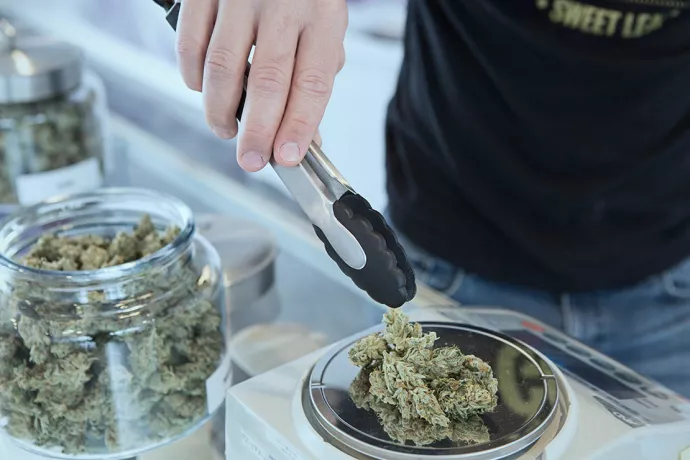
Diversity missing in Canada’s legal cannabis industry, says UTM researcher
When the government of Canada legalized cannabis in October of 2018, most Canadians viewed it as a progressive move that aligned with their attitudes around recreational usage and would end senseless criminalization. But two years on, we are discovering that the makeup of those leading this new market is anything but progressive.
A new policy brief co-authored by Akwasi Owusu-Bempah, an assistant professor in the University of Toronto Mississauga’s Department of Sociology who researches cannabis legalization, reveals that Black, Indigenous and other racialized minorities, as well as women, are vastly underrepresented in corporate leadership positions in the cannabis industry.
Owusu-Bempah is among several authors of the brief, How Diverse is Canada’s Legal Cannabis Industry?, which was primarily produced by Nazlee Maghsoudi, a U of T Health Services Research PhD candidate. Maghsoudi is the knowledge translation manager at the Centre on Drug Policy Evaluation, a Toronto-based research and public outreach organization that also participated in the study. They analyzed the race and gender of 700 C-suite executives and directors at 222 cannabis businesses—166 licensed producers and 56 parent companies—by examining publicly available documents and online profiles found that they are primarily White (84 per cent) and male (86 per cent).
“I was disheartened but not surprised by the findings, because the barriers to entry to become a licensed producer are still very high. It requires a lot of money, resources and connections to obtain a licence to produce and sell cannabis on this scale,” says Owusu-Bempah, who is the director of research for the Campaign for Cannabis Amnesty, which advocates for pardons for people with criminal records for marijuana possession.
The lack of diversity in the cannabis market is on its own a troubling fact, reflecting how socioeconomic inequality rooted in systemic racism and sexism has once again closed doors to opportunity for minorities and women. But Owusu-Bempah says the issue is more egregious when considered in the context of the historically heavy-handed policing of BIPOC for marijuana possession during prohibition. The war on drugs led to disproportionate racial profiling, arrests and incarceration of Black and Brown populations for cannabis-related offences, despite evidence of similar rates of use across racial groups. This excessive targeting and punishment has contributed to the marginalization of racialized Canadians, who experience relatively higher rates of social stigma, poverty and unemployment.
Owusu-Bempah says society has an obligation to rectify these historic injustices by making it easier for BIPOC and women to participate in the cannabis industry. To create a level playing field, the policy brief recommends federal, provincial and municipal governments adopt social equity programs similar to those enacted in California, Massachusetts and Illinois that set aside a certain number of cannabis licences for members of underrepresented groups. It also endorses using a portion of tax revenue from cannabis sales to provide financial support for minority licence-holders to establish their businesses. As well, it encourages private actors to take steps to diversify their executive ranks and boards of directors.
“The government could have done more to repair the harms caused by prohibition by creating avenues for entry into the legal cannabis market for groups that have been unfairly targeted,” Owusu-Bempah says. “We can learn from other jurisdictions that have endeavoured to ensure their inclusion in the industry.”
